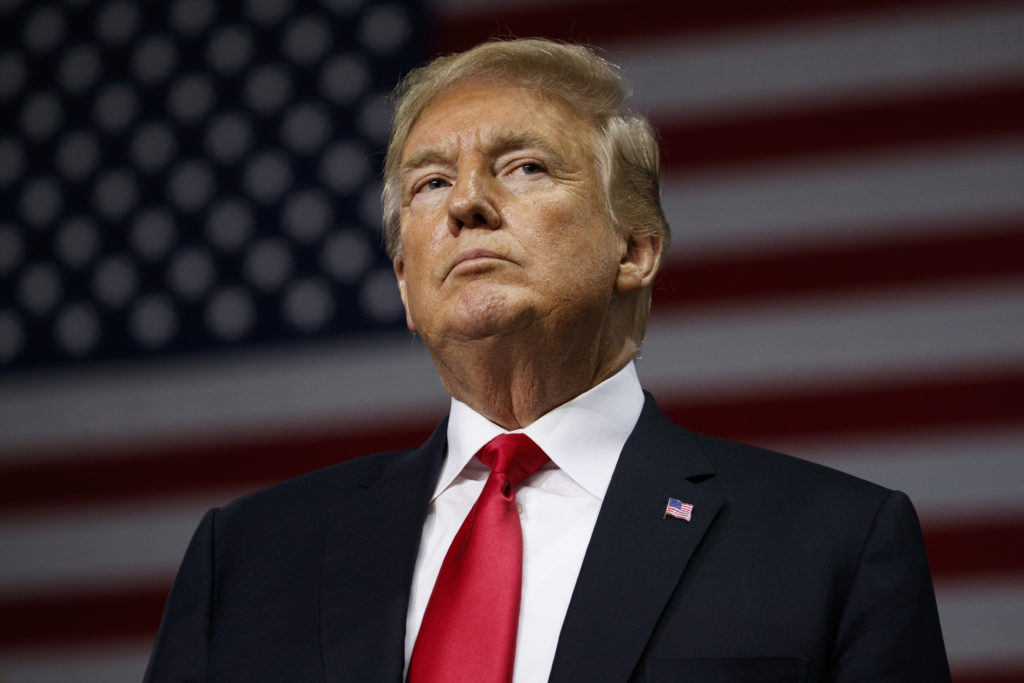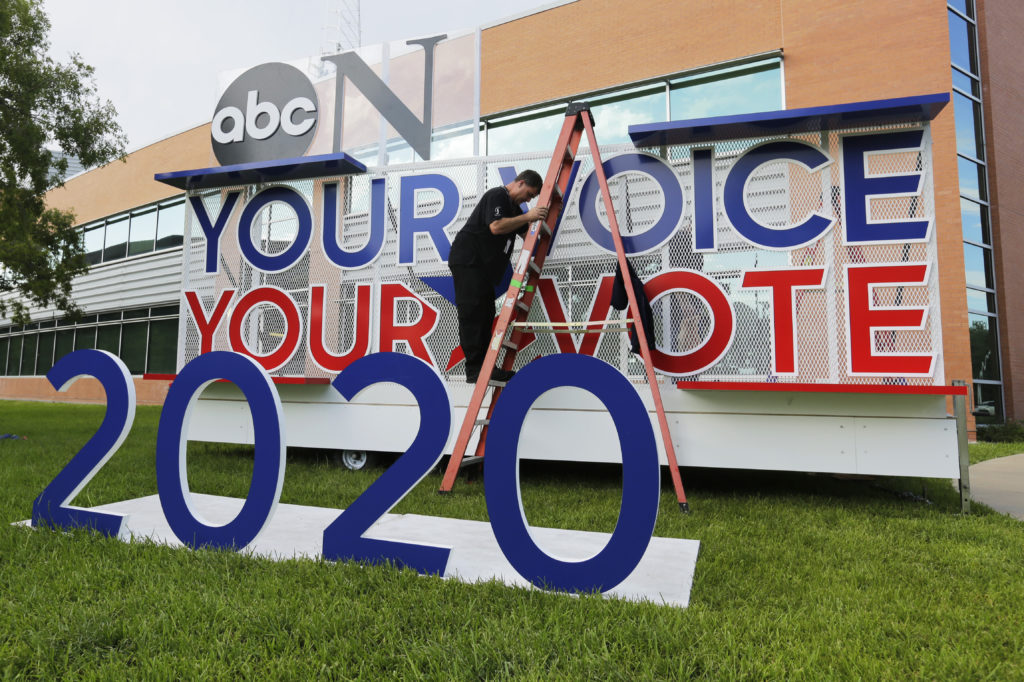Southern Poverty Law Center employees vote to join union

Employees of Southern Poverty Law Center civil rights organization have voted to unionize, the SPLC announced Monday. The employees voted to join the Washington-Baltimore News Guild. The vote was 142-45, according to the SPLC union twitter account. Karen Baynes-Dunning, interim president and CEO of the Southern Poverty Law Center, said the organization’s employees “have spoken through a process that gave every eligible person the opportunity to weigh in on this important decision.” “We go forward as one SPLC with gratitude for the commitment and engagement of our talented staff and the work we will continue doing together,” Baynes-Dunning said in a statement announcing the union vote. A super-majority of employees this fall requested representation by the Washington-Baltimore News Guild, Local 32035 of The News Guild-Communications Workers of America, AFL-CIO. The nonprofit is perhaps best known for its work monitoring hate organizations but also does extensive civil rights litigation. The move to unionize follows upheaval at the organization that saw the departure of longtime leaders and the announcement of a review of workplace culture. The organizing committee has said that it wants to form a strong union that lays a “foundation for a legacy of equal rights, respect and dignity for all workers, regardless of race, color, religion, sex, sexual orientation, gender identity, physical ability, and national origin.” Republished with the Permission of the Associated Press.
Democrats lay out case for Wednesday Donald Trump impeachment vote

House Democrats laid out their impeachment case against President Donald Trump on Monday, a sweeping report accusing him of betraying the nation and deserving to be ousted, as key lawmakers began to signal where they stand ahead of this week’s landmark votes. What Democrats once hoped would be a bipartisan act, only the third time in U.S. history the House will be voting to impeach a president, is now on track to be a starkly partisan roll call Wednesday. No Republicans are breaking with the president and almost all Democrats are expected to approve the charges against him. A raucous town hall Monday in the Detroit suburbs put on display the nation’s wrenching debate over the unconventional president and the prospect of removing the him from office. Freshman Democratic Rep. Elissa Slotkin was both heckled and celebrated as she announced her support for impeachment. “There’s certainly a lot of controversy about this,” Slotkin told the crowd of 400. “But there just has to be a moment where you use the letter of the law for what they were intended.” Trump faces two articles of impeachment brought by Democrats. They say he abused the power of his office by pressuring Ukraine to investigate Democratic rival Joe Biden and obstructed Congress by aggressively trying to block the House investigation and its oversight duties as part of the nation’s system of checks and balances. The president “betrayed the Nation by abusing his high office to enlist a foreign power in corrupting democratic elections,” says the 650-page report from the House Judiciary Committee. He withheld military aid from the ally as leverage, the report says, and ”Trump, by such conduct, has demonstrated that he will remain a threat to national security and the Constitution if allowed to remain in office.” The report says the president then engaged in an unprecedented attempt to block the investigation and “cover up” his misconduct. “In the history of the Republic, no President has ever ordered the complete defiance of an impeachment inquiry,” it says. Trump, tweeting from the sidelines after instructing the White House not to participate in the House inquiry, insists he has done nothing wrong. He is promoting lawyer Rudy Giuliani’s alternative theory that it was actually Biden and Ukraine that interfered, a conspiracy-laden idea that other most other Republicans are actively avoiding. Sticking to the language he has relied on for months, he tweeted on Monday, “The Impeachment Hoax is the greatest con job in the history of American politics!” As the House prepares for Wednesday’s vote, just a handful of Democrats are expected to break ranks to oppose impeachment as Speaker Nancy Pelosi marches the majority toward a vote she hoped to avoid having Democrats take on their own. One freshman Democrat, Rep. Jeff Van Drew of New Jersey, lost five key staff members Monday after he said he would vote against impeachment and indicated he was switching parties to become a Republican. Another Democrat, Rep. Collin Peterson, a Minnesota centrist, has not decided how he will vote, his spokeswoman said As the House was detailing its case against the nation’s 45th president, attention was turning to the Senate where the top Democrat, Sen. Chuck Schumer of New York, called anew for fresh evidence and testimony from key White House officials for the Senate impeachment trial. “What is President Trump hiding?” Schumer said Monday. Senate Majority Leader Mitch McConnell is hoping to avoid a drawn-out spectacle in his chamber, though Trump, a former reality TV show host, has signaled that is what he prefers as he seeks vindication. Republicans, who hold the majority, are expected to acquit Trump of the charges during a trial starting in January. In a letter to McConnell, Schumer proposed hearing testimony from former national security adviser John Bolton, acting White House chief of staff Mick Mulvaney and two others as part of a detailed offer he made to Republicans as an opening offer for negotiations. Democrats want to hear from Bolton, who once labeled the alternative foreign policy orchestrated by Trump lawyer Giuliani a “drug deal’’ he wanted no part of. Bolton left the White House in September. The Democrats also want to hear from Mulvaney, who has acknowledged the military aid to Ukraine was being held up, as well as two other White House officials who defied House subpoenas to testify. McConnell is facing criticism for saying he’s taking his “cues” from the White House as he ensures Trump there will not be the 67 votes needed in the Senate to convict the president. Democrats complain that he and other Republicans are not operating as impartial jurors. The GOP leader is planning to meet soon with Schumer to discuss the contours of next month’s trial, McConnell’s office said. The report released Monday by the House Judiciary Committee, a historic marker like those produced during impeachment proceedings for Richard Nixon and Bill Clinton, formally lays the groundwork for the vote. It outlines the panel’s findings and includes those from the Intelligence Committee’s months-long investigation that was sparked by a still-anonymous government whistleblower’s complaint about Trump’s July phone call with Ukraine President Volodymyr Zelenskiy. It also includes Republican rebuttals. The House Rules Committee will meet Tuesday in what is expected to be a marathon session to set the parameters for Wednesday’s debate. By Lisa Mascaro and Mary Clare Jalonick Associated Press. Associated Press writers Laurie Kellman and Alan Fram in Washington, David Eggert in Rochester, Mich., and Steve Karnowski in Minnesota contributed to this report. Republished with the Permission of the Associated Press.
Turbulence shakes democrats going into final debate of 2019

Seven Democratic presidential candidates will stand on stage this week in Los Angeles, a pool of survivors who have withstood almost a year on the campaign trail, sustained attacks from rivals in both major political parties and five rounds of high-pressure debates. And while the field has been effectively cut down from more than 20 in the span of six months, a deepening sense of volatility is settling over the Democratic primary on the eve of the sixth and final debate of 2019. The remaining candidates, those in the debate and some trying to compete from outside, are grappling with unprecedented distraction from Washington, questions about their core principles and new signs that the party’s energized factions are turning against each other. Lest there be any doubt about the level of turbulence in the race, it’s unclear whether Thursday’s debate will happen at all given an unsettled labor union dispute that might require participants to cross a picket line. All seven candidates have said they would not do so. The Democratic dilemma is perhaps best personified by Elizabeth Warren, whose progressive campaign surged through the late summer and fall but is suddenly struggling under the weight of nagging questions about her health care plan, her ability to compete against President Donald Trump and her very authenticity as a candidate. Boyd Brown, a South Carolina-based Democratic strategist who recently decided to back Joe Biden only after his preferred candidate, Beto O’Rourke, was forced from the race, likened Warren’s position to that of someone falling down a mountain grasping for anything to slow her descent. “She’s got real problems,” Brown said. Warren has avoided conflict with her Democratic rivals for much of the year, but she has emerged as the chief antagonist of the leading candidates in the so-called moderate lane, former Vice President Joe Biden and Mayor Pete Buttigieg of South Bend, Indiana. Seven weeks before Iowa’s Feb. 3 caucus, the Massachusetts senator is attacking both men with increasing frequency for being too willing to embrace Republican ideas and too cozy with wealthy donors. Those close to Warren hope the strategy will allow her to shift the conversation away from her own health care struggles back to her signature wealth tax and focus on corruption. Yet she could not escape questions about her evolving position on Medicare for All as she campaigned in Iowa over the weekend. When asked about health care, Warren told a crowd of roughly 180 people in the Mississippi River town of Clinton, Iowa, about a plan to expand insurance coverage without immediately moving to a universal, government-run system. She promised that those who wanted government health insurance could buy it before finally concluding, “At the end of my first term, we’ll vote on Medicare for All.” The next question came from a man who said he was on Medicare and mostly happy about it, but had lingering issues. “You call it Medicare for All and it’s better. Can’t you change the name?” he asked of her proposal. “I like your suggestion,” Warren responded, in a tone suggesting she wasn’t entirely joking. “Let’s call it health care for everybody.” She later added, “Let’s call it better than Medicare for All. I’m in.” Even entertaining a name change seemed to mark yet another shift for Warren, who first co-sponsored Medicare for All in 2017, but began pivoting away from the proposal after experts questioned the plan she released in October to pay for it without raising middle-class taxes. She subsequently released a “transition plan” promising to get Medicare for All approved by Congress by the end of her third year as president while relying on existing insurance plans, including those established by Obamacare, to expand health coverage in the interim. Warren’s Democratic critics suggest her evolution on the issue has stalled her momentum because it goes beyond a policy dispute and raises broader questions about what may be the most important personal quality in politics: authenticity. Indeed, Buttigieg, Biden and other rivals have seized on her shifts. Even Bernie Sanders, Warren’s progressive ally and Medicare for All’s author, seemed to pile on by promising to send a full bill to Congress implementing the measure during the first week of his administration. Without naming any of his rivals, Biden adviser Symone Sanders said candidates would not succeed in shifting the conversation away from health care this week even if they wanted to. She said to expect another “robust exchange” on the issue, which “is not going away and for good reason, because it is an issue that in 2018 Democrats ran on and won.” Tough questions for Warren haven’t just come from her rivals. Since Thanksgiving, she’s shortened her typically 30-minute and more stump speech to around 10 minutes and used the extra time to take more audience questions — only to be forced further on the defensive about health care. Barton Wright, a 69-year-old technical writer, pressed Warren on Medicare for All at a recent event in Rochester, New Hampshire, noting after the event that he wants a deeper explanation. “It just sounds awful,” Wright said. “It sounds ‘like Hemlock for All’ for people who don’t like Medicare. And that’s a lot of people.” Even after questioning Warren, however, Wright said he was helping her campaign and still plans to vote for her. Meanwhile, Buttigieg, the surprise member of the top-tier, is grappling with issues of his own that expose another fissure between the moderate and progressive wings of the party. Protesters aligned with Warren and Sanders tracked him across New York City last week banging pots and pans and calling him “Wall Street Pete” as he continued his aggressive courtship of wealthy donors. The 37-year-old seemed genuinely confused by the protests, which he was forced to acknowledge during at least one Manhattan fundraiser because the noise outside was so loud. As he faced supporters in Seattle over the weekend, Buttigieg acknowledged that the intra-party attacks will almost certainly continue, although he tried to downplay the intensity of the
Mayor Randall Woodfin backing Joe Biden for president

The mayor of Alabama’s largest city is endorsing Joe Biden for the 2020 Democratic Party presidential nomination just weeks after the vice president met with a group of Southern black mayors representing millions of voters in key early primary states. In an exclusive interview with The Associated Press on Sunday, Birmingham Mayor Randall Woodfin said he left that Atlanta meeting in November convinced that Biden is the best choice to defeat President Donald Trump and lead the country. “I think he would view mayors as his partners in the campaign and he would view us as partners in the White House,” Woodfin said. “That’s important to me.” Woodfin’s endorsement, which he is expected to announce on Monday, is the latest amid a scramble among the 2020 candidates to shore up support with mayors. Late 2020 entry Michael Bloomberg — the former mayor of New York whose philanthropy has supported mayors across the country with training and millions of dollars in funding for city initiatives — has secured the backing of eight mayors since entering the field last month, including black mayors in Southern cities with large black populations whose voters could factor into the primary contest. Philadelphia Mayor Jim Kenney endorsed Massachusetts Sen. Elizabeth Warren in October. Pete Buttigieg is the current mayor of South Bend, Indiana, New Jersey Sen. Cory Booker is former mayor of Newark, New Jersey. Vermont Sen. Bernie Sanders is former mayor of Burlington, and ex-Housing and Urban Development Secretary Julian Castro is former mayor of San Antonio. Woodfin said the role of mayors as candidates and proxies for candidates this cycle is notable. “As mayors as executives, we have to deal with issues every single day,” Woodfin said. “Regardless of the size of their city, it’s important to to take their candidacies seriously.” Mayors — and particularly black mayors across the South — could play a major role on the early calendar. Alabama is a Super Tuesday state and is one of four Southern states on the ballot March 3, including North Carolina, Tennessee and Virginia. All have significant black populations. “We can acknowledge that 72 hours after South Carolina is Super Tuesday,” Woodfin said. “Since 1992, whoever wins South Carolina wins a majority of the Southern states. Embedded in that math is people. Black women … are the base of the party, and we must respect that.” Woodfin represents a city with a metro area population of 1.3 million that is 74 percent African American. He was among four black Southern mayors who issued an open letter earlier this year to 2020 Democratic hopefuls seeking their support, calling on them to address priorities including affordable housing, climate change, health care and criminal justice. One of the letter’s signers, Mayor Steve Benjamin of Columbia, South Carolina, was among Bloomberg’s early endorsers. Specifically, Woodfin pointed to Biden’s work on infrastructure under President Barack Obama and his continued support for the Affordable Care Act as reasons for his endorsement. Alabama is among the states that did not expand Medicaid, and Woodfin’s city has the country’s fourth-largest public hospital and a 29 percent poverty rate. Woodfin added that next year’s U.S. Senate race — with embattled Democrat Doug Jones fighting for reelection — and the 2020 fight in legislatures over redistricting could all be helped by a Biden candidacy. “You need somebody at the top of the ticket who can help down ballot candidates and expand the map nationwide,” Woodfin said. “From all the evidence I’ve seen, Vice President Biden gives us the best chance to do that.” Still, Woodfin said it will be important for Democratic mayors to come together after a hard-fought primary to galvanize the electorate in their respective cities to defeat their common enemy. “Speaking with one voice behind one candidate is going to be important,” Woodfin said. “When you think about the different mayors who have endorsed, we all agreed with us writing that letter, that didn’t mean all of us would endorse the same candidate. When the primary’s over, I expect all of us to come together. As mayors, we’re all still in this together. Haines has covered race and politics for The Associated Press since 2015. Follow her work on Twitter at http://www.twitter.com/emarvelous. Catch up on the 2020 election campaign with AP experts on our weekly politics podcast, “Ground Game.” Republished with the Permission of the Associated Press.


